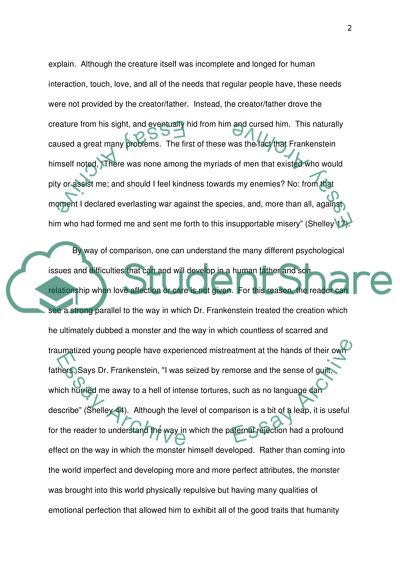Cite this document
(“The Novel Mary Shelley's Frankenstein Essay Example | Topics and Well Written Essays - 1250 words”, n.d.)
Retrieved from https://studentshare.org/literature/1482751-the-novel-mary-shelles-frankenstein
Retrieved from https://studentshare.org/literature/1482751-the-novel-mary-shelles-frankenstein
(The Novel Mary Shelley'S Frankenstein Essay Example | Topics and Well Written Essays - 1250 Words)
https://studentshare.org/literature/1482751-the-novel-mary-shelles-frankenstein.
https://studentshare.org/literature/1482751-the-novel-mary-shelles-frankenstein.
“The Novel Mary Shelley'S Frankenstein Essay Example | Topics and Well Written Essays - 1250 Words”, n.d. https://studentshare.org/literature/1482751-the-novel-mary-shelles-frankenstein.


